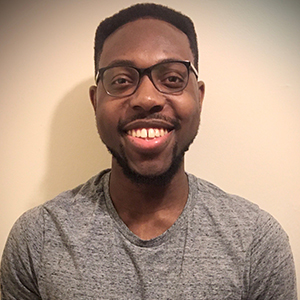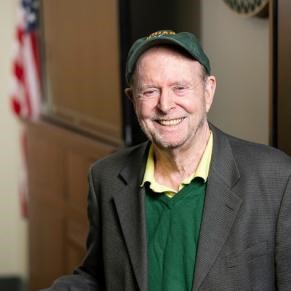In This Story

Originally published on September 8, 2020
For 30 years, the Schar School of Policy and Government’s International Center for Applied Studies in Information Technology (ICASIT) has been sponsoring students to work directly on technology-related policy issues in areas including, among others, telecommunications, robotics, artificial intelligence, and green IT. The program’s director, Professor of Public Policy Stephen Ruth, has been responsible for the center’s participation in grants totaling more than $5 million for projects in more than 20 nations. ICASIT interns are frequently involved.
This year, ICASIT intern Uhunoma Edamwen, a student in the Master’s in Public Administration program at the Schar School, developed a database closer to home, focused on an issue central to long-term care: hospice services.
Edamwen’s database is a comprehensive source of hospice-related resources that provides a wealth of information covering everything from culture and family dynamics to grief and volunteer training resources. The resources in the database are useful to hundreds of thousands of hospice volunteers, who can simply click on a topic and be connected to the latest in reports, videos, and other relevant materials.

The database was prepared in partnership with Virginia-based Capital Caring Health, one of the largest hospice organizations in the country, with facilities in the Schar School’s Washington, D.C. region. Ruth facilitated the partnership, knowing through his own volunteer work with the organization that a database of resources for volunteers would be useful for anyone working in hospice organizations. With Edamwen’s work in researching the needed resources and organizing and compiling the information, a usable database was created to address their longstanding needs.
Jenna Cooley, director of volunteer services for Capital Caring Health, said of the database: “It’s fantastic! I can’t thank [Uhunoma] enough for [his] hard work and dedication to this project. This will be such a helpful tool for our volunteers and for all who are interested in learning more about working in this very special field.”
The project seems to be a win-win proposition, said Ruth. “A local organization receives a useful service and a Schar School student gains valuable experience,” he said.
The database is an example of collaborations between Schar School students and professors that can help support students in gaining skills and confidence applicable beyond their degree.
“I enjoyed working with Professor Ruth on the hospice database,” said Edamwen. “It was one of the few projects where I had a chance to interface with a client partner in the [Washington, D.C.] region. This gave me an opportunity to build experience doing communications and research work with another organization.”
The hospice database will continue to grow beyond Edamwen’s work, and is planning to be used by Capital Caring Health and their network to train volunteers well into the future.
